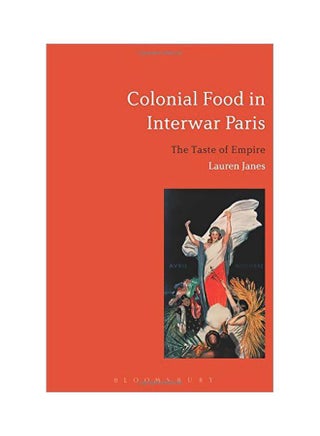| المراجعة التحريرية | Janes succeeds in demonstrating that the history of colonial foods, their trade flows, the government and lobbying activities they trigger, their representations, and their consumption is a most rewarding key with which to unlock the workings of a culture. * Journal of Modern History * As this remarkable book shows, the colonial foods that the French chose - and, as significant - chose not to eat open a window onto popular attitudes to empire at a singularly visceral level. Taste preferences are revealed here as profoundly conservative, often unreceptive to the efforts of government agencies and colonial lobbyists to persuade French consumers, not just to 'think' imperially but to 'eat' imperially as well. * Martin Thomas, University of Exeter, UK * An absolutely fascinating study of the impact of colonial food on France between the wars. In many ways this story sets the stage for our own global food supply with all its inherent problems of inequality of wealth, chauvinistic protectionism, the influence of politicians on international development, the allure and disgust of the strange and exotic, and the terrible consequences for places around the globe that supply rice, sugar, chocolate, coffee and other foodstuffs. The book emphasizes beautifully how food both defines Frenchness but also how it is used to exclude the other. * Ken Albala, University of the Pacific, USA * Colonial Food in Interwar Paris: The Taste of Empire is an excellent study of the relationship of food to images of identity in France and its empire during the years between the two world wars of the twentieth century. Writing in the context of an increased interest in both food history and postcolonial studies, Lauren Janes documents the real, but limited impact of colonial foods on the diet and identity of the metropolitan French population. Her book expands our knowledge of food as a vector of social and cultural identity in general and contributes to the recent focus in postcolonial studies on the culture of French colonialism. * H-France Review * |
استرجاع مجاني وسهل
أفضل العروض

